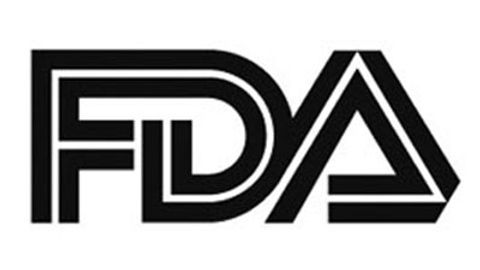FDA Removes Partial Clinical Hold on Camidanlumab Tesirine Phase 2 Trial
The FDA has lifted a partial clinical hold placed on the phase 2 clinical trial of camidanlumab tesirine in patients with relapsed or refractory Hodgkin lymphoma after ADC Therapeutics submitted further study information to the FDA.

The FDA has lifted a partial clinical hold placed on the phase 2 clinical trial of camidanlumab tesirine in patients with relapsed or refractory (R/R) Hodgkin lymphoma (HL) after ADC Therapeutics submitted further study information to the FDA.1
“The ADC Therapeutics team worked diligently to provide a thorough and prompt response to the FDA following its request for information about our pivotal Phase 2 clinical trial of Cami,” said Jay Feingold, MD, PhD, senior vice president and chief medical officer of ADC Therapeutics, in a statement. “During the partial clinical hold, we continued to treat patients benefiting from Cami, and now look forward to resuming the enrollment of new patients in the trial as soon as possible.”
Prior to the partial clinical hold, the phase 1 trial of camidanlumab tesirine (formerly ADCT-301) was promising. Data presented at the 15th International Conference on Malignant Lymphoma (ICML 2019) showed that in 77 patients with classical HL, the overall response rate (ORR) was 86.5% across all subgroups in the study. This efficacy result was suggestive of significant anti-tumor activity in patients with R/R classical HL. Based on the phase 1 study, the recommended tolerated dose for the pivotal phase 2 study was 45 μg/kg every 3 weeks administered for 2 cycles followed by 30 μg/kg every 3 weeks as a method of improving thetolerability of camidanlumab tesirine while preserving efficacy.2
Earlier data around camidanlumab tesirine established the activity of the agent in lymphoma cell lines. These data were also presented at ICML 2019 and covered HL, non-Hodgkin lymphoma, and T-cell lymphomas. The in vitro activity shown with single-agent camidanlumab tesirine was found to be associated with cell surface and RNA level CD25 expression. The drug was also combined with other agents and appeared strongly synergized with everolimus (Afinitor), copanlisib (Aliqopa), venetoclax (Venclexta), and vorinostat (Zolinza).
“Our presentations at ICML 2019 represent the strong dataset we continue to amass for ADCT-402 and ADCT-301 in difficult-to-treat patients, both young and old, with subtypes of R/R refractory lymphoma, including DLBCL and Hodgkin lymphoma. The clinical activity we have observed in these populations, which include heavily pretreated patients with unfavorable genetics and primary refractory disease, increases our enthusiasm for the potential utility of ADCT-402 and ADCT-301 as single agents and in combination with other agents if approved,” Feingold said in a statement following ICML 2019.
In October 2019, the first patients of the 100-patient phase 2, multi-center, open-label, single-arm clinical trial were treated with camidanlumab tesirine with the overarching goal of further demonstrating the efficacy and safety of the agent in this patient population. The trial data will support a future Biologics License Application for camidanlumab tesirine. Efficacy in this study will be determined primarily by ORR. The key secondary end points of the study include the duration of response, complete response rate, relapse-free survival, progression-free survival, overall survival, and the number of patients with serious adverse events.3
The trial will continue to enroll patients with pathologically confirmed R/R HL who have failed 3 prior lines of therapy, which may include brentuximab vedotin (Adcetris), nivolumab (Opdivo) or pembrolizumab (Keytruda). Patients are required to have measurable disease per 2014 Lugano Classification, an ECOG performance status of 0 to 2, and adequate organ function.
Camidanlumab tesirine is an antibody drug conjugate that is capable of achieving immunogenic cell death by binding to a CD25-expressing cell. In addition to lymphomas, the agent is being studied in multiple solid tumors.
References:
ADC Therapeutics announces U.S. Food and Drug Administration has lifted partial clinical hold on pivotal phase 2 clinical trial of camidanlumab tesirine. News release. ADC Therapeutics. June 6, 2020. Accessed July 6, 2020. https://bit.ly/3e38Hno
ADC Therapeutics presents clinical data on ADCT-402 and ADCT-301 in subtypes of relapsed or refractory lymphoma at the 15th International Conference on Malignant Lymphoma. News release. June 21, 2019. ADC Therapeutics. https://bit.ly/2Z17E2X
ADC Therapeutics doses first patients in pivotal phase 2 clinical trial of ADCT-301 in patients with relapsed or refractory hodgkin lymphoma. News release. ADC Therapeutics. https://bit.ly/3iHkLOL
Examining the Non-Hodgkin Lymphoma Treatment Paradigm
July 15th 2022In season 3, episode 6 of Targeted Talks, Yazan Samhouri, MD, discusses the exciting new agents for the treatment of non-Hodgkin lymphoma, the clinical trials that support their use, and hopes for the future of treatment.
Listen
Later-Line CD19 and Bispecific Therapies Considered After CAR T
October 1st 2024During a Case-Based Roundtable® event, Christopher Maisel, MD, discussed third- and fourth-line therapy and barriers to bispecific therapy use in diffuse large B-cell lymphoma in the second article of a 2-part series.
Read More